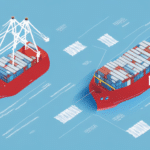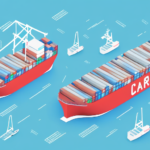What is Freight Auditing and How Does it Work?
Freight auditing is the systematic process of reviewing and verifying all bills, invoices, and financial records associated with your company's freight transportation costs. This comprehensive analysis ensures accuracy by identifying discrepancies such as overcharges, billing errors, or unauthorized services. The auditing process typically involves:
- Data Collection: Gathering all relevant freight documents, including bills of lading, invoices, and contracts.
- Verification: Checking for compliance with contract terms, accurate billing rates, and proper documentation.
- Analysis: Identifying patterns or recurring issues that could indicate inefficiencies or fraudulent activities.
- Reporting: Providing detailed assessments and actionable insights to address any identified discrepancies.
By meticulously examining each aspect of freight transactions, freight auditing helps businesses maintain financial integrity and optimize their transportation expenses.
Importance and Benefits of Freight Auditing
Cost Savings
One of the primary advantages of freight auditing is the substantial cost savings it offers. According to a recent industry report, companies can reduce their transportation costs by up to 10-15% through effective auditing. By identifying and rectifying billing errors or overcharges, businesses can ensure they are only paying for the services received.
Improved Compliance
Freight auditing helps ensure compliance with industry regulations and contractual agreements. This reduces the risk of incurring fines or penalties due to non-compliance. Additionally, maintaining proper documentation through auditing supports transparency and accountability within the supply chain.
Enhanced Supply Chain Management
Through detailed analysis, freight auditing provides insights into shipping patterns and carrier performance. This information is valuable for optimizing shipping routes, negotiating better rates, and improving overall supply chain efficiency, ultimately leading to more reliable and timely deliveries.
How Freight Auditing Saves Money
Freight auditing contributes to significant cost reductions in several ways:
- Eliminating Unnecessary Charges: By scrutinizing invoices, auditing ensures that businesses are not paying for services they did not receive.
- Negotiating Better Rates: Detailed insights into shipping costs enable businesses to negotiate more favorable terms with carriers.
- Optimizing Shipping Processes: Identifying inefficiencies allows for the streamlining of shipping operations, reducing overall transportation expenses.
- Preventing Fraud: Regular auditing helps detect and prevent fraudulent activities, safeguarding the company's financial interests.
Implementing a robust freight auditing program can lead to substantial savings, directly impacting the company's profitability and competitive edge.
The Role of Technology and Future Trends in Freight Auditing
Advanced Software Solutions
Modern freight auditing leverages sophisticated software that automates data collection and analysis, significantly enhancing accuracy and efficiency. Tools like ShipScience's auditing software utilize algorithms to detect anomalies and streamline the auditing process.
Artificial Intelligence and Machine Learning
AI and machine learning technologies are revolutionizing freight auditing by enabling predictive analytics and real-time data processing. These technologies can forecast potential discrepancies, optimize routing, and provide deeper insights into transportation patterns.
Blockchain for Transparency
Blockchain technology offers a transparent and immutable ledger for all freight transactions, enhancing trust and accountability between shippers and carriers. This innovation is set to further transform the freight auditing landscape by ensuring data integrity and reducing the risk of fraud.
Choosing the Right Freight Audit Service Provider
Selecting the appropriate freight audit service provider is crucial for maximizing the benefits of freight auditing. Consider the following factors:
- Industry Experience: Ensure the provider has a proven track record in your specific industry and understands its unique challenges.
- Comprehensive Services: Look for a provider that offers a full range of auditing services, including billing verification, compliance checks, and performance analytics.
- Technology Integration: Opt for providers that utilize advanced technology to enhance accuracy and efficiency.
- Reputation and References: Check reviews, testimonials, and case studies to gauge the provider's reliability and effectiveness.
- Cost Transparency: Ensure the provider has clear pricing structures without hidden fees.
Choosing the right partner can significantly enhance your freight auditing outcomes, leading to better financial performance and supply chain management.
Best Practices and Common Mistakes in Freight Auditing
Best Practices
- Regular Auditing: Conduct audits consistently to catch and rectify discrepancies promptly.
- Comprehensive Documentation: Maintain thorough records of all shipments, invoices, and contracts.
- Clear Communication: Establish open lines of communication with carriers to address issues swiftly.
- Training and Education: Ensure that your team is well-versed in auditing procedures and industry standards.
- Utilize Technology: Leverage advanced tools and software to enhance the accuracy and efficiency of audits.
Common Mistakes to Avoid
- Ignoring Small Discrepancies: Even minor errors can accumulate over time, leading to significant costs.
- Lack of Standardization: Inconsistent auditing processes can result in missed discrepancies and reduced effectiveness.
- Insufficient Training: Untrained staff may overlook critical details, compromising the audit's accuracy.
- Overlooking Carrier Performance: Focusing solely on costs without assessing carrier reliability and performance can lead to operational inefficiencies.
- Neglecting Compliance: Failing to ensure regulatory compliance can result in fines and damage to the company's reputation.
By adhering to best practices and avoiding common pitfalls, businesses can enhance the effectiveness of their freight auditing programs.
Real-Life Success Stories
Numerous companies have realized significant benefits from implementing freight auditing programs:
- Herman Miller: The renowned furniture manufacturer eliminated over $300,000 in unnecessary transportation fees by identifying and correcting billing errors within their supply chain.
- Nestle: By increasing their freight bill auditing accuracy rate to 98%, Nestle saved over $20 million in transportation costs, enhancing their overall financial performance.
- Michelin: The tire giant reduced their distribution costs by more than 20% through comprehensive auditing and optimized routing strategies.
These examples underscore the transformative impact of freight auditing on business operations and profitability.
Future Trends in the Freight Audit Industry
The freight audit industry is evolving rapidly, driven by advancements in technology and the increasing complexity of global supply chains. Key future trends include:
- Artificial Intelligence and Machine Learning: These technologies will continue to enhance the predictive capabilities and accuracy of freight auditing processes.
- Blockchain Integration: Blockchain will provide greater transparency and security in freight transactions, reducing fraud and enhancing trust.
- Advanced Data Analytics: Enhanced analytics will offer deeper insights into shipping patterns, enabling more informed decision-making.
- Automation: Increased automation will streamline auditing processes, reducing manual efforts and improving efficiency.
- Sustainability Focus: Auditing will increasingly incorporate sustainability metrics, helping businesses optimize their supply chains for environmental impact.
Staying abreast of these trends will be essential for businesses seeking to maintain competitive advantage and operational excellence in freight auditing.
Conclusion: Why Every Business Should Implement a Freight Audit Program
Freight auditing is an indispensable tool for businesses that rely on transportation to deliver goods and services. It not only ensures financial accuracy by identifying and rectifying billing discrepancies but also enhances overall supply chain efficiency and compliance. The benefits of freight auditing extend beyond cost savings, fostering better relationships with carriers and providing valuable insights for strategic decision-making.
By implementing a comprehensive freight audit program, businesses can achieve greater profitability, enhanced operational efficiency, and robust risk management. As the industry continues to evolve with technological advancements, freight auditing will remain a critical component of successful supply chain management, driving sustained business growth and competitiveness.






















